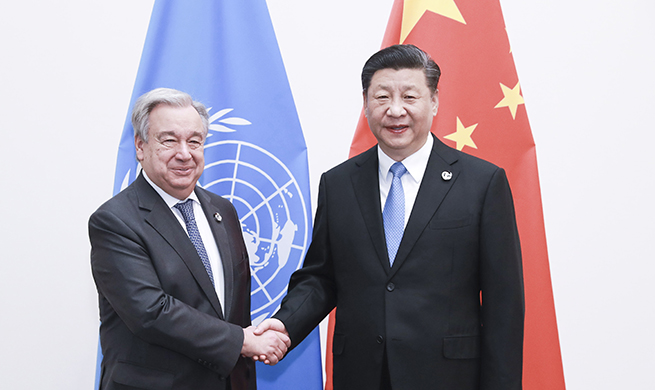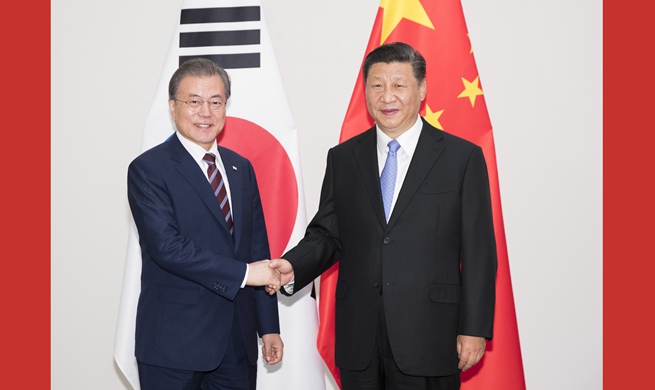LONDON, June 28 (Xinhua) -- Building on the fruitful bilateral relationship, the UK-China collaboration still has great potential in the future, said a British expert, adding "the best is yet to come."
"We're in the foothills of what I think will be an incredibly fruitful relationship for both sides," said Sir Sherard Cowper-Coles, chair elect of China-Britain Business Council (CBBC), in an exclusive interview with Xinhua.
"On one hand, you have the enormous and growing economic power in China. On the other hand, you have the skill, tradition, engineering and innovation here," he explained.
"So in both directions, we've started to open up some markets, exchange ideas, and exchange human and financial capital," Cowper-Coles added.
Citing the words of Fang Wenjian, chairman of the China Chamber of Commerce in the UK (CCCUK) and general manager of Bank of China Limited London Branch, he said "China's representation in the city wasn't anywhere proportionate to China's economic weight in the world."
Referring to the increasing investments from China in the UK, Cowper-Coles welcomed both Chinese investment and expertise, especially in sustainable infrastructure. "Compared with China, the United Kingdom is under-invested in infrastructure," he noted, speaking highly of the high speed rail network in China.
"When you look at the Chinese high speed rail network, and compare it with the arguments we're having about building HS2 in Britain, you see that we desperately need investment in infrastructure," he said.
"But more than that, we need Chinese expertise. We need Chinese experience in building at pace, and infrastructure fit for a modern nation," Cowper-Coles stressed.
Speaking of the U.S.-China trade frictions provoked by the United States, Cowper-Coles is confident that China's economy is strong enough to absorb the negative effects.
"Yes, of course it will. There's no doubt about that," he said.
"I also think the world will be better without this trade friction," he continued, "all boats float on a rising tide and the sort of frictions we're seeing now damage the United States at least as much as they damage China."
"So we would like to see an end of these frictions, and a sensible, rational approach to helping us all grow together," he said.












